Senior executive leaders from the Islamic banking and finance industry representing high-growth markets across Asia, the Middle East and beyond to gather in Singapore at the 4th Annual World Islamic Banking Conference: Asia Summit (WIBC Asia 2013) to address the challenges and opportunities in the increasingly global footprint of Islamic finance
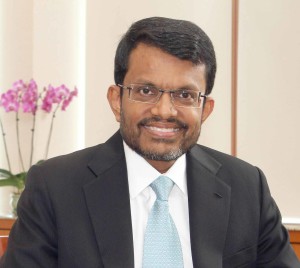
Singapore: 20th May 2013: More than 480 leading industry players, thought leaders and key regulators in the international and regional Islamic finance industry will be gathering from the 3rd to the 5th of June 2013 at the Pan Pacific Singapore Hotel, Singapore, for the 4th Annual World Islamic Banking Conference: Asia Summit (WIBC Asia 2013). To be held under the theme “Bridging the World of Islamic Finance: Boosting International Linkages and Cross-Border Opportunities”, WIBC Asia 2013, hosted with the official support of the Monetary Authority Singapore, will set the stage for high-level discussions focusing on strengthening international connectivity and capturing cross-border opportunities that will drive further growth in the Islamic finance industry in Asia. The summit will also seek to bolster stronger economic linkages with other key centres for Islamic finance, with a principal focus on forging ties with the Arabian Gulf.
Announcing the launch of the 4th annual edition of the event, David McLean, Chief Executive of the World Islamic Banking Conference: Asia Summit (WIBC Asia), noted that “the global Islamic finance industry has over the last decade witnessed a transition into a dynamic, fast growing and competitive form of financial intermediation servicing an increasingly international client base”.
“The Ernst & Young World Islamic Banking Competitiveness Report, which was launched at the 19th Annual World Islamic Banking Conference: Global Summit (WIBC) in Bahrain last December, estimated that global Islamic assets are expected to reach $ 1.8 trillion by 2013”, he said.
According to Mr. McLean, a key factor which will ensure further growth in the Islamic finance industry and boost its ability to successfully compete with the conventional financial system would be improved international connectivity – both in terms of trans-jurisdictional regulatory harmonisation and product standardisation.
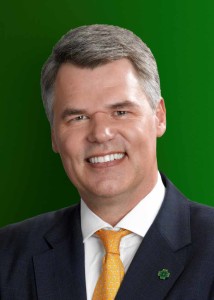
“Stronger inter-linkages between the key Islamic financial centres will facilitate better mobilization of funds and more sophisticated product development giving Islamic investors the breadth and depth that is currently lacking in the Shari’ah-compliant banking, finance and investments industry”, he noted.
He also said that “with Asia-Pacific becoming an increasingly attractive destination for investments that are Shari’ah compliant, there is a need to make further advances towards achieving global connectivity and deepening economic cooperation with other key centres for Islamic finance. In order to better facilitate cross-border relationships, more intensive international co-ordination of regulatory approaches and supervisory oversights, as well as collaboration amongst leading industry players, is needed.”
“It is against this backdrop that we are convening the 4th Annual World Islamic Banking Conference: Asia Summit (WIBC Asia 2013) with the official support of the Monetary Authority of Singapore”, he added.
Commenting on their support for the event, H.E. Ravi Menon, Governor of the Monetary Authority of Singapore said that “WIBC Asia has grown in both size and stature since its inaugural conference in 2010. The event is now an important platform connecting the vibrant Islamic finance industries in Asia and the Middle East. The Conference also reinforces the value proposition of Islamic finance to the wider financial industry in the region.”
The 4th Annual World Islamic Banking Conference: Asia Summit is set to begin on the 3rd of June 2013 with a pre-conference seminar hosted by the Bahrain based International Islamic Financial Market (IIFM). The IIFM industry seminar focusing on Islamic Liquidity Management, Islamic Hedging and Capital Market Instruments will be inaugurated by Khalid Hamad Abdul-Rahman Hamad, Chairman of the International Islamic Financial Market (IIFM) and Executive Director of Banking Supervision at the Central Bank of Bahrain. The inaugural address will be followed by a special keynote address by H.E. Dr. Halim Alamsyah, Deputy Governor of Bank Indonesia.
The main conference which begins on the 4th of June will be officially inaugurated with a special opening address by H.E. Lim Hng Kiang, Minister for Trade and Industry, Republic of Singapore and Deputy Chairman of the Monetary Authority of Singapore. The inaugural address will be immediately followed by special keynote addresses by H.E. Dr. Mohammad Y. Al-Hashel, Governor of the Central Bank of Kuwait and Ranjit Ajit Singh, Chairman of Securities Commission Malaysia.
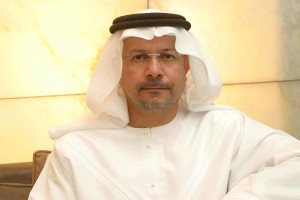
A key highlight of WIBC Asia 2013 will be the exclusive Power Debate session led by internationally respected CEOs and industry leaders. Moderated by Ashar Nazim, Partner and Head of Islamic Banking Excellence Center, Ernst & Young, the power debate session will feature strategic level discussions on overcoming the obstacles to achieve greater international connectivity in Islamic finance. The Power Debate Session featuring Shayne Nelson, Chairman of Standard Chartered Saadiq Islamic Banking, Chief Executive Officer Private Bank and Group Head SME Banking, Standard Chartered; Toby O’Connor, Chief Executive Officer of the Islamic Bank of Asia; Muzaffar Hisham, Chief Executive Officer of Maybank Islamic Berhad; Badlisyah Abdul Ghani, Executive Director/Chief Executive Officer of CIMB Islamic Bank Berhad; Hussain AlQemzi, Chief Executive Officer, Noor Islamic Bank and Group Chief Executive Officer, Noor Investment Group; Syed Abdull Aziz Jailani Bin Syed Kechik, Chief Executive Officer of OCBC Al-Amin Bank Berhad and Abdulrazzak Mohammed Elkhraijy, Executive Vice President and Head of the Islamic Banking Development Group, The National Commercial Bank-Saudi Arabia, will assess prospects for greater inter-regional linkages and cross-border Islamic finance transactions and will analyze what needs to be done to create a level playing field across borders for Islamic finance.
Confirming his participation at the event, Toby O’Connor, Chief Executive Officer of the Islamic Bank of Asia said that “Islamic finance over the last few years has become increasingly relevant to global companies and investors. We are seeing Islamic financial institutions leveraging on the strengths and expertise that have been developed across international jurisdictions and this is expanding the range of Shari’ah-compliant products and services, allowing the Islamic finance industry to tap into broader and deeper investor pools not only in Asia and the Middle East, but globally. With the development of deeper trade and investment links between Asia and the Middle East, there will undoubtedly be greater scope for inter-regional economic opportunity that could open new growth paths for the Islamic banking, finance and investments industry.”
He commented that it was exciting to see the two key regions for Islamic finance – the Asia and Middle East, converge in a unique platform that is focused on achieving greater inter-regional linkages and cross-border Islamic finance transactions; and the role that the WIBC Asia platform plays in this regard was important. “The Islamic Bank of Asia is once again delighted to be partnering with this prestigious event that fosters new business relations between the key growth markets for Islamic finance”, he added.
A similar view was expressed by Hussain AlQemzi, Chief Executive Officer, Noor Islamic Bank and Group Chief Executive Officer, Noor Investment Group who said that “there are tremendous new growth opportunities for Islamic finance that can be generated through greater cooperation between financial institutions in Asia and the Arabian Gulf. Asian countries are facing escalating infrastructure and development needs, backed by solid economic growth, which requires huge capital investments. On the other hand liquidity levels in the Arabian Gulf remain high. As trade and investment links between the Middle East and Asia deepen, Islamic finance can play a significant role in bridging the funding gap created by the shrinkage of the global liquidity pool and the industry is well positioned to facilitate more efficient mobilisation and allocation of funds between the two regions.”
Mr. AlQemzi also said that “as a leading player in the global Islamic banking and finance industry, we believe that the emerging economies of South East Asia will provide significant new opportunities for Islamic finance to further grow its multi-billion dollar global business and we are keen to tap the emerging opportunities in the Asia region and we look forward to discussing new cross-border growth opportunities for Islamic finance at the World Islamic Banking Conference: Asia Summit this year.”
Next generation Islamic financial products, innovative solutions and the latest developments in the international Islamic banking and finance industry will also be showcased at the WIBC Asia Exhibition that runs along the sidelines of the conference. The three day event is expected to gather more than 480 international delegates from across the international Islamic banking and finance industry.
 Cash And Trade Magazine For Cash and Trade professionals in the Middle East
Cash And Trade Magazine For Cash and Trade professionals in the Middle East

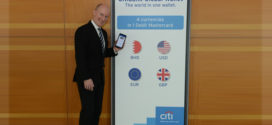

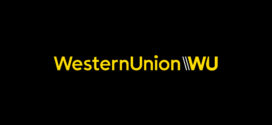
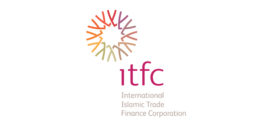
One comment